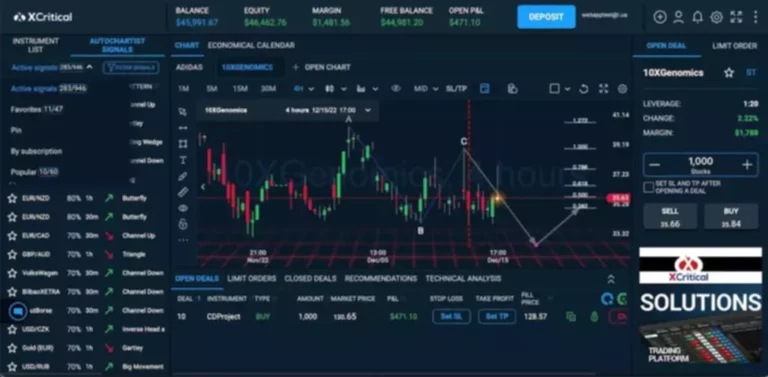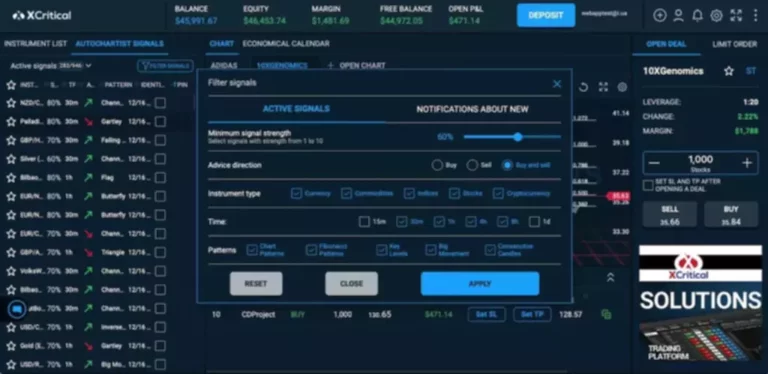What’s An Executing Broker? With Picture
Its position is to ensure the transaction and to make sure that it goes smoothly. The clearinghouse acts as a counterparty to both the customer and the vendor, which means that it takes on the chance of default. By acting as a guarantor, the clearinghouse helps to guarantee that trades are settled in a well timed and efficient manner, which helps to maintain market stability. When it involves clearing and settlement within the financial Prime Broker and an Executing Broker trade, the method of trade comparison and affirmation is a crucial part. This process is necessary to guarantee that both the buyer and seller agree on the small print of the trade earlier than it’s settled.

To perceive how a clearing dealer capabilities, you first need to know the way clearing corporations work. These organizations are affiliated with a inventory trade and are liable for confirming, settling and delivering transactions. Also generally known as clearinghouses, they make sure that all trades are settled properly and in a well timed manner. A additional improvement was multilateral netting, which further reduced the number of transactions.
The order would should be viewed as by both an executing broker who ensures it is legal and viable and furthermore the clearing broker, to make sure that funds are available and the shares are there to be purchased and bought. Retail investors sometimes commerce online or via a financial advisor who might send their orders to a dealer. Since accounts are set up in a way to safeguard investors, orders are first evaluated for suitability.
- The guidelines can change, and executing brokers want to verify they’re all the time following them.
- The executing dealer acts as the middleman between the buyer and vendor, guaranteeing that the commerce is executed correctly and in a well timed method.
- Primarily, the clearinghouse helps to mitigate the risk of counterparty default by acting as a guarantor, which makes it potential for trades to be executed with confidence.
- The executing broker is answerable for finishing up the trades on behalf of their clients, which includes executing purchase and promote orders on the related exchange or trading venue.
- The position of the executing broker is complicated and requires a deep understanding of the market, as nicely as the principles and laws that govern it.
- Its function is to guarantee the transaction and to make positive that it goes easily.
With their expertise and attention to detail, executing brokers assist to facilitate the graceful operation of monetary markets around the world. The realm of executing brokers commonly intersects with hedge funds and institutional shoppers that seek adept trade execution, particularly for substantial transactions. Usually nestled throughout the area of prime brokerage companies, these brokers offer comprehensive solutions tailored for high-volume lively merchants. In the intricate world of economic transactions, the distinction between executing and clearing brokers is crucial.

Understanding trade execution and confirmation is essential to ensuring that trades are executed effectively and accurately, and that each one parties involved in the commerce are aware of the main points of the transaction. In conclusion, navigating the complicated world of brokerage companies requires an intensive understanding of the several varieties of brokers, together with executing brokers and prime brokers. By recognizing the key differences between these two forms of brokers, traders could make knowledgeable selections about which broker to determine on based on their particular person trading needs. Whether Or Not merchants require access to a number of markets and competitive pricing or increased leverage and superior trading tools, the proper dealer may help maximize trading efficiency. By contemplating components such as fees, commissions, and regulatory compliance, traders can choose a broker that aligns with their trading targets and goals. Ultimately, understanding the executing dealer vs prime broker distinction is essential for merchants looking for to optimize their buying and selling performance and obtain success in the markets.
What Is A Clearing Dealer And Executing Broker?
In this case, the introducing broker will send their clients’ cash and securities to a clearing broker to clear the trade, and the clearing broker will also preserve the customers’ accounts. Managing the life cycle of a commerce is the basic exercise of exchanges, funding banks, hedge funds, pension funds and many different monetary corporations. It should also be noted nevertheless, that even with pending orders, as quickly as the pending order meets its execution standards it’s nonetheless then executed as a market order. This means that a pending order, though offering some more control for traders, can still be topic to slippage and doesn’t guarantee any particular buying and selling outcome. Clearing and reconciliation are essential parts of the commerce life cycle in investment banking, enjoying critical roles in making certain accuracy, maintaining general integrity, and assuaging the risk of economic offers.
The executing broker procures a commission on the buy-sell unfold and passes alongside the execution to the settlement and clearing group of the prime brokerage. It’s a kind of package deal deal supplied by main monetary institutions to their hedge fund purchasers. Such packages usually include cash management, securities lending, custody of belongings, day by day account statements, risk management, securities financing and cash financing. The explicit mix of services differs depending on the monetary establishment and the shopper, but the chief objective is to allow the hedge fund to succeed.
If the inventory is traded on an trade (for instance, the NYSE), it could send the order directly to that trade, to a different change, or to a 3rd market maker. If the inventory trades in an over-the-counter (OTC) market similar to Nasdaq, the dealer might ship the order to that market maker. Executing brokers focus on trade execution, whereas clearing brokers ensure commerce settlement and proper clearing. To be contrasted with a major dealer, an executing dealer is an effective quaint share broker (or dealer), who accepts (or broker-dealer) orders from clients to purchase or promote securities.
They work immediately with the markets to purchase and sell shares, bonds, or different monetary merchandise precisely as their clients need. This means they concentrate on the mechanics of trading, using special pc techniques and all the time watching the markets to ensure they get one of the best offers. An executing broker is a sort of broker that carries out trades on behalf of their purchasers. These purchasers could be particular person investors or other financial institutions. The main job of an executing dealer is to be positive that the trades occur rapidly and at the absolute best price. They use special trading methods and have direct entry to the markets the place the trades take place.
Executing Broker: What It Is, The Means It Works, Faqs
From the executing broker’s perspective, trade comparability and affirmation are accomplished by way of various channels, including digital platforms, telephone calls, and even fax. The process helps to reduce the risk of errors, discrepancies, and delays, which can Digital asset ultimately result in monetary losses. The dealer is obligated to do the best it could to fulfill your request inside cause. Brokers can place an order directly on the floor of the inventory exchange (e.g., the Big Apple Inventory Exchange) or to a regional inventory market, which generally cost a payment for the execution of an order.
The role of the executing dealer is advanced and requires a deep understanding of the market, as properly as the foundations and rules that govern it. By understanding the critical https://www.xcritical.com/ position of the executing broker, traders can ensure that their trades are executed correctly and settled promptly. Deciding On the right broker is a vital decision that can significantly influence trading performance. With numerous brokers providing a range of providers, it might be overwhelming to navigate the complicated world of brokerage services.
In distinction, prime brokers present a complete suite of services, together with execution, clearing, and custody, along with elevated leverage and access to advanced buying and selling tools. When deciding between an executing dealer vs prime dealer, traders should contemplate their particular person buying and selling wants and targets. By understanding the important thing differences between these two forms of brokers, traders could make informed decisions and optimize their trading performance. An executing broker is a sort of dealer that plays a crucial position in executing trades on behalf of clients. They act as an intermediary between consumers and sellers, facilitating transactions and offering access to various markets. One of the first benefits of working with an executing dealer is access to a number of markets, allowing traders to diversify their portfolios and capitalize on opportunities across different asset classes.
It is important to notice that the delivery of securities and fee of funds are separate processes and may occur simultaneously or on completely different dates. Accurate commerce seize is an important aspect of the clearing and settlement course of. It is essential for guaranteeing compliance with regulatory necessities, effective threat management, providing an audit path, and improving efficiency. Executing brokers should make sure that they seize all related data accurately to make certain that all parties concerned in the commerce have an correct understanding of what transpired. Trade execution and confirmation are crucial steps in the securities trading process. Within the enclave of prime brokerage, the executing dealer assumes a vital position by sourcing securities for purchase transactions and identifying suitable buyers for sale transactions.

